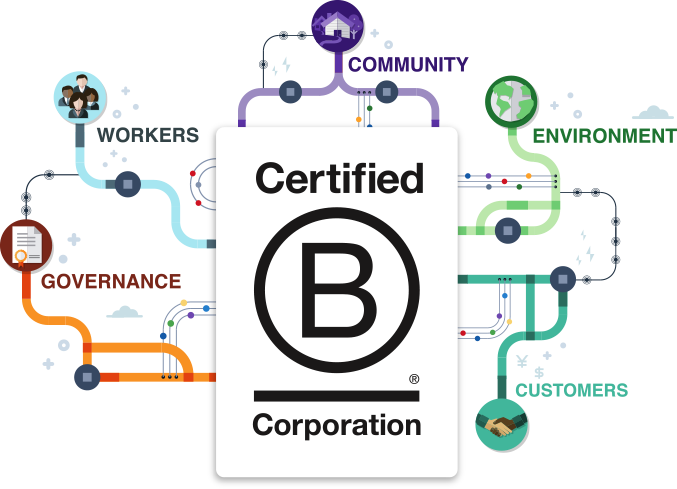Since the dawn of the Industrial Age in the 18th Century, the progress of Western society has historically hinged on a free market. Capitalism lit the fires of entrepreneurial, technology-driven innovation — transforming the workforce, accelerating GDP, and driving new opportunities in sectors like healthcare, finance, and professional services. According to Stephen Butler, Honorary Senior Lecturer at UCL London, advanced capitalism has led to an overarching increase in well-being and unrivaled advances in infrastructure, health, and social provisions. However, in some areas pure capitalism has not been able to achieve everything.
Cultural factors coupled with a global pandemic recession are inspiring many organizations to consider how to revise their operating models to substantially meet new goals around positive social impact. “I say that we can no longer wash our hands of our responsibility for what people do with our products. Yes, profits are important, but so is society. And if our quest for greater profits leaves our world worse off than before, all we will have taught our children is the power of greed,” said Salesforce CEO, Marc Benioff, in an NYT op-ed. “It’s time for a new capitalism — a more fair, equal, and sustainable capitalism that actually works for everyone and where businesses, including tech companies, don’t just take from society but truly give back and have a positive impact.”
One organization believes its interdependent version of free market participation is the way of the 21st Century: Meet the B Corporation (aka “B Corp”). According to the non-profit organization, B Lab, B Corps meet the highest standards of verified social and environmental performance, public transparency, and legal accountability to balance profit and purpose.

Companies like Method, Patagonia, Ben & Jerry’s, Allbirds, Bombas, Cotopaxi, are all high profile examples of B Corps. Start-ups and existing companies can undertake the B Corp mission and certification process by centering their operations, structure, and leadership mindset around stakeholders (rather than just the shareholders). Adopting a way of operating as a “force for good” — seizes an opportunity for a new type of capitalism.
During the certification process, a prospective B Corp is evaluated through the following criteria:
- Comprehensive social and environmental performance (beyond the product- and service-level);
- How a company’s operations and business model impact workers, community, environment, and customers;
- Transparency and accountability requirements are met to verify a positive impact.
Motivated by both purpose and profit, B economies are proving to be more resilient during  economic downturns (i.e., stable businesses), as well as influencing a more equitable economy. A recognizable hallmark of B Corps is the drive for social innovation. Companies can begin driving a social innovation model by considering the following:
economic downturns (i.e., stable businesses), as well as influencing a more equitable economy. A recognizable hallmark of B Corps is the drive for social innovation. Companies can begin driving a social innovation model by considering the following:
- Account for externalities and collective outcomes by embracing “we” over “me”;
- Use the most modern frameworks and technologies to protect digital sovereignty;
- Center environmental, social, governance (ESG) issues;
- Take substantive action towards building diversity and inclusion throughout the organization; and
- Focus on investing in and mentoring the next generation of leaders who embrace social good and innovation.
We can’t overhaul a pure market economy overnight but organizations – both large and small – have a unique opportunity to make impactful and singular contributions to an ecosystem that needs a collective team effort and a thorough questioning of priorities. Putting the stakeholder first takes into account the many people impacted on the inside and the outside of an organization, and encourages leaders to take a serious look at what true priorities and progress look like in this new decade.










